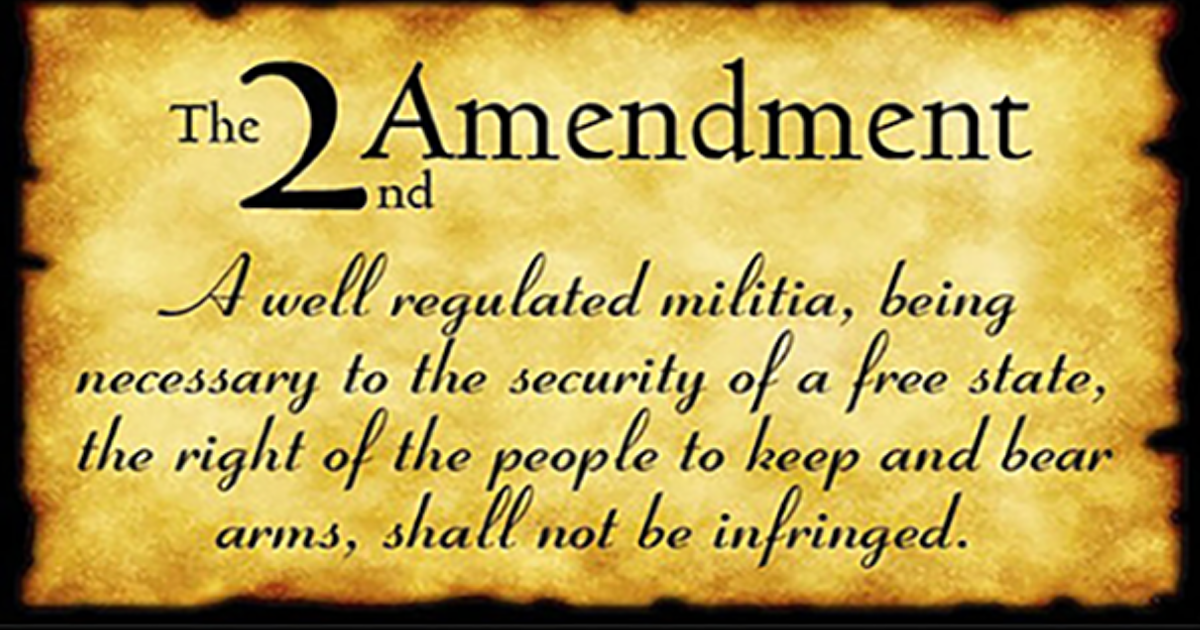|
The Pentagon announced last week that it was sending $40 million to the State Department's "Global Engagement Center" to "counter foreign disinformation." Much of the money will go to creating US disinformation, to meddling in the internal affairs of other countries, and to more jobs at neocon NGOs pushing pro-war propaganda. It's a massive rip-off and worse -- we are the targets.
By Adam Dick
The Academy of Motion Pictures Arts and Sciences missed its opportunity to award libertarian communicator Ron Paul an Oscar after his small roles in the 2014 movies Atlas Shrugged: Who Is John Galt? and Alongside Night. But, on Tuesday — a week before the awarding of this year’s Oscars — Paul did receive a Stosscar for “Lifetime Achievement.” The Stosscars, a creation of libertarian commentator John Stossel, are awarded to politicians. As Stossel notes in explaining his awards, “politicians deceive people just like actors do.” Indeed, some of the awards presented by Stossel are for bad actions over the past year, such as the joint award for Senate Majority Leader Mitch McConnell (R-KY) and Senate Minority Leader Chuck Schumer (D-NY) for “Worst Act of Bipartisanship” in recognition of their advancing of debt-boosting spending legislation. But, other Stosscars, such as the one for Paul, as well as those for Sen. Rand Paul (R-KY) and San Francisco District Attorney George Gascón, commend admirable political actions. Watch here Stossel’s entertaining announcement of this year’s Stosscars:
By Jacob G. Hornberger
Whenever there is a gun massacre, statists inevitably respond that it’s time to repeal the Second Amendment. The idea is that if the Second Amendment is gone, so will be the right to own guns in the United States. There is just one big problem with that position: It’s wrong. The Second Amendment, like the First Amendment, doesn’t give anyone any rights. Instead, it prohibits the federal government from infringing on rights that are natural and God-given and that preexist government. The Declaration of Independence sets forth the essential principles. Every person (i.e., not just American citizens) is endowed by nature or God with fundamental rights. These include life, liberty, and the pursuit of happiness. Thus, given that people’s rights are natural and God-given, they preexist government. The rights come first and the government comes second. What is the purpose of government? The Declaration answers the question: The purpose of government is to protect the existence and exercise of people’s natural, God-given rights. That was the reason for calling the federal government into existence with the U.S. Constitution—to protect people’s natural, God-given rights that preexisted the federal government. A big potential problem arises: The possibility, even likelihood, that the government itself will end up infringing or even destroying people’s rights. That possibility deeply concerned our American ancestors. They were convinced that government itself, not some foreign entity, constituted the biggest threat to their freedom, privacy, property, and pursuit of happiness. That’s why they were not terribly enthusiastic about approving the Constitution. If they hadn’t approved it, the United States would have continued operating under the Articles of Confederation, under which the national government didn’t even have the power to tax people. The American people finally decided to go along with the deal. The biggest argument that finally sold it to them was that the U.S. Constitution, which called the federal government into existence, strictly limited the powers of the federal government to those few powers that were enumerated in the document. Those enumerated powers did not include the power to infringe or destroy people’s natural, God-given rights — rights, again, that preexisted the federal government. Thus, even without the Bill of Rights, the federal government had no legitimate authority to control what people read or what people owned, including books and guns. That’s because these rights preexisted the government and because the Constitution did not give the federal government the power to infringe on these preexisting rights. In fact, if the government did infringe on people’s natural, God-given rights, it would be violating the very reason that people call governments into existence — to protect the existence and the exercise of their rights. So why then was the Bill of Rights necessary? In a technical sense, it wasn’t. Since the powers delegated to the federal government were enumerated in the Constitution and since the delegated powers did not include the powers to control what people read or owned (including books and guns), the Bill of Rights was essentially superfluous. In fact, some people even argued that by enumerating some rights in the Bill of Rights, that might be construed to mean that those were the only rights that were being protected. That’s why the Ninth Amendment was enacted — to point out that that was not the intention. The reason the Bill of Rights was enacted was because of the deep concern that our American ancestors had about the threat that the new federal government would pose to their rights and liberties. They believed that this government — their government — would inevitably end up doing what every other government in history has done — destroy there rights. That’s why they enacted the Bill of Rights — to hammer the message home that the American people were expressly prohibiting the federal government from traveling the road to tyranny that all other governments in history had travelled. But notice something important about the Bill of Rights: It gives no one any rights. Instead, it prohibits the federal government from infringing or destroying rights that already exist. it really should have been called a Bill of Prohibitions rather than a Bill of Rights. Thus, people don’t have the right to own guns because of the Second Amendment, just as people don’t have the right of free speech because of the First Amendment. People’s natural, God-given rights preexist government. They exist whether the Bill of Rights, the Constitution, and the federal government are there or not. What happens when a government infringes or destroys the rights of the people? The Declaration of Independence gives us the answer: It is the right of the people to alter or even abolish the government and institute new government whose powers are limited to its legitimate function. That’s a right that every American living today should keep in mind.
This article was originally published at The Future of Freedom Foundation.
Ron Paul is traveling today. Please enjoy this speech that was delivered back in 2016 at a Mises Institute even held in Houston, TX.
By Ron Paul
The recently-passed big-spending budget deal’s failure to generate significant opposition from the “tea party” has led some to pen obituaries for this once-powerful movement. These commentators may have a point. However, few of them understand the true causes of the tea party’s demise. The movement commonly referred to as the tea party arose in opposition to the 2008 bank bailouts. The tea party grew as its focus shifted to opposition to President Obama’s policies, particularly his stimulus spending bill, cap-and-trade legislation, and, of course, the health care plan tea party leaders successfully branded as Obamacare. In its early days, the tea party was equally opposed to big spenders in both parties. In fact, it was often harder on Republicans than on Democrats. Tea party groups even backed primary challengers to Republican incumbents. Unfortunately, the tea party was quickly coopted by the GOP. As a result, while tea party groups still opposed Republican policies, they began muting their opposition to all but the worst Republican politicians. Now that Republicans control the White House and Congress, tea party groups have even muted their opposition to the policies. This reinforces the tendency of Republicans to support spending bills backed by Donald Trump or George W. Bush that they would have fought tooth and nail if they were proposed by Barack Obama or Bill Clinton. The tea party’s effectiveness as a force for fiscal conservatism was also crippled by the support of too many of its leaders and favorite politicians for a hyper-interventionist foreign policy. Support for foreign interventionism logically requires support for huge military budgets, which conflicts with a commitment to fiscal conservatism. Some tea party-backed politicians tried to reconcile support for militarism and fiscal conservatism by claiming to be “cheap hawks.” The problem with this formulation is that the so-called cheap hawks accept the neoconservative premise that American exceptionalism justifies US military intervention around the globe. This makes it impossible for them to resist the calls for increased military spending to ensure the United States has the ability to police the world in the name of “democracy.” Devotion to protecting the military-industrial complex from the budget ax leads defense hawks to cut deals with progressives to increase spending on both warfare and welfare. We saw this with the recent budget deal, where so-called fiscal conservatives defended a $65 billion increase in domestic spending because it was necessary to get progressive support for an $80 billion increase in military spending. One cannot be both a budget hawk and a defense hawk. Fortunately, while the tea party is dead or at least on life support, a related movement is alive and growing. This is the liberty movement that grew out of my 2008 presidential campaign. Ironically, one of the first events of that movement was called a “tea party.” Unlike the tea party, the liberty movement does not just focus on domestic policy. It works to roll back government in all areas. Thus, the liberty movement is just as committed to ending unnecessary and unconstitutional wars and protecting civil liberties as it is to repealing Obamacare. Liberty movement leaders and activists also refuse to compromise their principles for the benefit of the Republican Party. The commitment to consistency and principle may be why the liberty movement is so attractive to young people. This growing movement is a source of hope that the cause of individual liberty, free markets, and limited government will prevail.
President Trump has announced yet another round of North Korea sanctions, targeting Chinese and other companies still daring to trade with Pyongyang. Will he bring Kim Jong-Un to his knees? Or just keep hurting the suffering civilians?
The Fed has created a mountain of problems. Every solution (of theirs) leads to even more problems. Ron Paul talks about the what the Fed has done, how it tries to keep things going, and the inevitable economic crisis that is coming.
By Chris Rossini
Propaganda being what it is, it's the biggest warmongers who litter the pages of the history books. They get the statues, the busts, and the hosannahs. There are so many examples, but let's start with the beginning of America's foray into empire building abroad. For sure, you've heard of the ultra-warmonger Theodore Roosevelt. He was instrumental in letting the American Empire genie out of the bottle. America would start its policy of foreign military adventurism by picking at the carcass of the Spanish Empire in 1898. The dreamers of American Empire would start small. They wouldn't go after the heavyweights right out of the gate. Cuba would be the first target....a tiny island that's close to America's shores. There was virtually nothing the Spanish could do. And no other European nation would come to Spain's aid. The foreign policy of peace and non-intervention that America practiced for it's first century of existence would now be tossed into oblivion. America would no longer be an example for the world. It would instead seek to dominate the world. Teddy Roosevelt would write things like: “No triumph of peace is quite so great as the supreme triumphs of war.” Prior to the U.S. intervention, he wrote: “it is very difficult for me not to wish for a war with Spain, for such a war would result at once in us getting a proper Navy and a good system of coast defense.” Interesting, isn't it. He wanted war, so that he could increase the size of the military. Sound familiar? Roosevelt would write in a letter: “Between ourselves I have been hoping and working ardently to bring about our interference in Cuba.” Well, Roosevelt and his band of friends got their little war (under false pretenses, as usual) and America hasn't stopped ever since. But what about the names that never make it into the history books? What about the peace-makers? No hosannah's for them. You've most likely never heard of Representative David Henderson, a Republican from Iowa during the run-up to the Cuba intervention. He was one of the voices of reason. Here were Henderson's words: “I have had letters from my people wanting us to take Cuba, to punish Spain. I simply write back that no international law makes the United States the regulator of the wrongs of the earth. God has written no motto on the banner of our country that demands of us the regulating of the wrongs of other countries to their people. We all sympathize with the liberty-loving and fighting Cubans, but they are citizens of another government. So long as that question is before us, I follow the advice of Washington, recommending that we mind strictly our own business.” Into the dustbin of history...never to be heard of again. Fortunately, the ideas of peace have not gone anywhere. They still exist, even though no one is ever supposed to consider them. The ideas of peace are waiting for enough courageous people to once again pick them up. Are you one of those people?
From taking away private guns, to more government guns to making public schools even more like prisons, the recent Florida school shooting has everyone offering solutions - and demanding government action. Will taking away more liberty make us safer?
What's going on in East Ghouta? One of the last jihadist-held parts of Syria is being liberated, but you wouldn't know it from US and UN reporting. Why is the UN taking sides, issuing provocative statements blaming the Syrian government while ignoring the other side?
|
Archives
July 2024
|




 RSS Feed
RSS Feed



